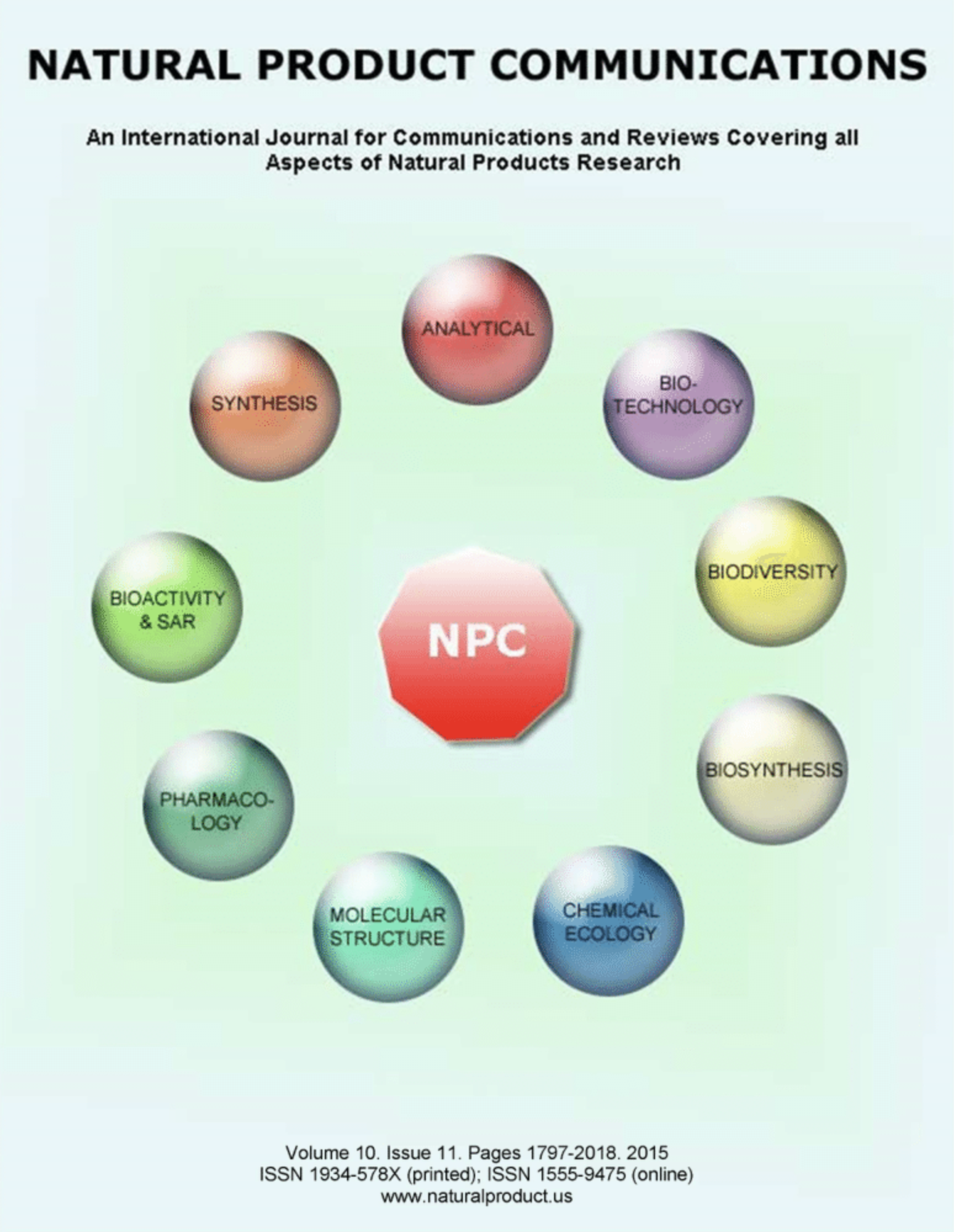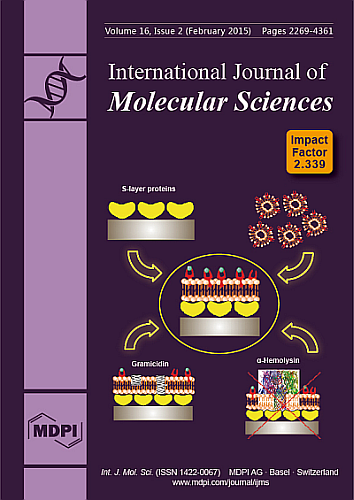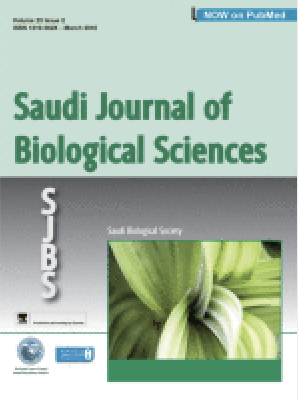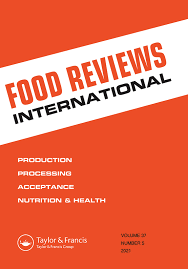Coix Seed
How to submit an article:
- Registered users can submit any published journal article that has a unique DOI (Digital Object Identifier) name or link to Research Hub.
- For example, you can paste the full DOI link:
https://doi.org/10.1109/5.771073or just the DOI name:10.1109/5.771073into the field above and click submit. - The person who is first to submit a valid article to Research Hub will forever be credited for it, and every article submission earns you +6 Research Points.
Published research studies are articles that present the findings of original research that has undergone a peer-review process and has been made publicly available in scholarly journals, books or other media.

Coicis Semen for the treatment of malignant tumors of the female reproductive system: A review of traditional Chinese medicinal uses, phytochemistry, pharmacokinetics, and pharmacodynamics
2023 Feb 23 Frontiers in Pharmacology Pan X, Shen Q, Zhang C, Zhang X, Li Y, Chang Z, et al.
Coicis Semen is an important botanical drug for the clinical treatment of female reproductive system malignancies, and its efficacy has been confirmed in more than 74 TCM clinical trials. These studies have shown that the administration of prescriptions containing Coicis Semen resulted in good therapeutic outcomes in those with cervical cancer, ovarian cancer, endometrial cancer, and other malignant tumors of the female reproductive system by inhibiting the growth of tumors, enhancing immune function, and improving the quality of life.
Review Article Cervical Cancer Anticancer Endometrial Cancer Coix Seed Ovarian Cancer
Kanglaite (Coix Seed Extract) as Adjunctive Therapy in Cancer: Evidence Mapping Overview Based on Systematic Reviews With Meta-Analyses
2022 Aug 12 Frontiers in Pharmacology Lu C, Wu S, Ke L, Liu F, Shang W, Deng X, et al.
Current evidence reveals that KLT is effective and safe as an adjunctive treatment for non-small cell lung cancer, malignant pleural effusion, and digestive system malignancies (such as hepatocellular carcinoma). However, the results assessed in this overview should be further verified using well-designed and clearly reported clinical trials and meta-analyses of KLT.
Systematic Review Cancer
Coix Seed Diet Ameliorates Immune Function Disorders in Experimental Colitis Mice
2021 Dec 28 Nutrients Zhou Q, Yu R, Liu T, Li Y, Zhong J, Zhang T, et al.
In conclusion, Coix seed, as a staple food, can alleviate experimental colitis, and the mechanism may be related to the immune regulation effect of Coix seeds.
Animal Study
Coix Seed Consumption Affects the Gut Microbiota and the Peripheral Lymphocyte Subset Profiles of Healthy Male Adults
2021 Nov 15 Nutrients Jinnouchi M, Miyahara T, Suzuki Y
As the relationship of microbiota and skin infection has not been clarified, our findings could provide a clue to a mechanism through which coix seed could promote the spontaneous regression of viral skin infections.
Randomised Controlled Trial Gut Microbiota T Lymphocytes
Coix Seed May Affect Human Immune Function
2021 Oct Natural Product Communications Suzuki Y, Konaya Y
Coix seed seems promising for health promotion and presents a challengeable and attractive theme for natural product chemists, pharmacologists, immunologists, and clinicians.
Review Article ImmunityResearch insights are moderated by the Research Hub team and offer an at-a-glance overview of interesting research findings.

2020 Natural Product Communications
The pharmacological actions of Coix seed in gastric cancer treatment may involve pathways in cancer, the DNA damage response, transcription factor binding, the apoptotic process, and the cell–cell junction.
Stomach Cancer
Mechanism Analysis of Coix Seed in Gastric Cancer Treatment Based on Biological Network Modules
Zhang, F., Liu, X., Huo, B., et al.

2019 BMC Complementary Medicine and Therapies
Coix lacryma-jobi sprout extract effectively inhibits cervical cancer cell growth by triggering cell cycle arrest and apoptosis.
Cervical Cancer
Coix lacryma-jobi var. ma-yuen Stapf sprout extract induces cell cycle arrest and apoptosis in human cervical carcinoma cells
Son, E.S., Kim, SH., Kim, Y.O. et al

2019 International Journal of Molecular Sciences
Coix seed extract could augment the efficacy of gemcitabine therapy in pancreatic cancer cells at least partly due to the alteration of ABC transporter-mediated drug efflux function.
Coix Seed Extract Enhances the Anti-Pancreatic Cancer Efficacy of Gemcitabine through Regulating ABCB1- and ABCG2-Mediated Drug Efflux: A Bioluminescent Pharmacokinetic and Pharmacodynamic Study
Qian, Y.; Xiong, Y.; Feng, D.; Wu, Y.; Zhang, X.; Chen, et al.

2016 Saudi Journal of Biological Sciences
Coix extracts have anti-colorectal cancer potential.
In vitro anti-cancer activities of Job’s tears (Coix lachryma-jobi Linn.) extracts on human colon adenocarcinoma
Manosroi, A., Sainakham, M., Chankhampan, C., et al.
Review Articles
Review articles summarise and critically evaluate the current state of research on a specific topic or field by synthesising multiple primary research studies.

Coicis Semen for the treatment of malignant tumors of the female reproductive system: A review of traditional Chinese medicinal uses, phytochemistry, pharmacokinetics, and pharmacodynamics
2023 Feb 23 Frontiers in Pharmacology Pan X, Shen Q, Zhang C, Zhang X, Li Y, Chang Z, et al.
Coicis Semen is an important botanical drug for the clinical treatment of female reproductive system malignancies, and its efficacy has been confirmed in more than 74 TCM clinical trials. These studies have shown that the administration of prescriptions containing Coicis Semen resulted in good therapeutic outcomes in those with cervical cancer, ovarian cancer, endometrial cancer, and other malignant tumors of the female reproductive system by inhibiting the growth of tumors, enhancing immune function, and improving the quality of life.
Review Article Cervical Cancer Anticancer Endometrial Cancer Coix Seed Ovarian Cancer
Kanglaite (Coix Seed Extract) as Adjunctive Therapy in Cancer: Evidence Mapping Overview Based on Systematic Reviews With Meta-Analyses
2022 Aug 12 Frontiers in Pharmacology Lu C, Wu S, Ke L, Liu F, Shang W, Deng X, et al.
Current evidence reveals that KLT is effective and safe as an adjunctive treatment for non-small cell lung cancer, malignant pleural effusion, and digestive system malignancies (such as hepatocellular carcinoma). However, the results assessed in this overview should be further verified using well-designed and clearly reported clinical trials and meta-analyses of KLT.
Systematic Review Cancer
Coix Seed May Affect Human Immune Function
2021 Oct Natural Product Communications Suzuki Y, Konaya Y
Coix seed seems promising for health promotion and presents a challengeable and attractive theme for natural product chemists, pharmacologists, immunologists, and clinicians.
Review Article Immunity
Coix Seed: A Review of Its Physicochemical Composition, Bioactivity, Processing, Application, Functionality, and Safety Aspects
2021 Mar 17 Food Reviews International Chidimma Juliet Igbokwe, Ming Wei, Yuqin Feng, Yuqing Duan, Haile Ma & Haihui Zhang
Review Article Coix SeedClinical Trials
Clinical trials are research studies that involve people and are conducted to evaluate the safety and efficacy of new treatments or interventions, such as drugs, medical devices, or behavioural therapies.
Study Protocols
Published study protocols are detailed plans that outline the objectives, methodology, statistical analyses, and organisation of a research study that have been made publicly available for others to review and use as a reference.
Presentation Slides

The pharmacological actions of Coix seed in gastric cancer treatment may involve pathways in cancer, the DNA damage response, transcription factor binding, the apoptotic process, and the cell–cell junction.
Zhang, F., Liu, X., Huo, B., Li, B., & Zhang, R. (

Coix lacryma-jobi sprout extract effectively inhibits cervical cancer cell growth by triggering cell cycle arrest and apoptosis.
Son, E.S., Kim, SH., Kim, Y.O. et al

Coix seed extract could augment the efficacy of gemcitabine therapy in pancreatic cancer cells at least partly due to the alteration of ABC transporter-mediated drug efflux function.
Qian, Y.; Xiong, Y.; Feng, D.; Wu, Y.; Zhang, X.; Chen, L.; Gu, M.

Coix extracts have anti-colorectal cancer potential.
Manosroi, A., Sainakham, M., Chankhampan, C., Manosroi, W., & Manosroi, J.
Executive Summary
Write an executive summary in the form of a blog article on the topic of "Research into Chinese medicine treatment for Coix Seed" summarising the research below and using language that can be easily understood by patients and avoiding medical jargon using a professional and caring tone of voice.
Write an executive summary in the form of a blog article on the topic of "Researched Chinese medicine treatments for Coix Seed" summarising the research below in an objective and easy to understand way, and using language that can be easily understood by patients. Group the article into Chinese medicine treatments first, followed by nutrition and other treatments. Avoid using medical jargon and use a professional and caring tone of voice.
Write me a concise but easy to understand executive summary on the topic of "Chinese medicine treatments for Coix Seed" based on the following research that I will give you. Your summary should be 2 paragraphs long in Australian English spelling and include references to the studies.
A published in 2020 in the journal Natural Product Communications found that The pharmacological actions of Coix seed in gastric cancer treatment may involve pathways in cancer, the DNA damage response, transcription factor binding, the apoptotic process, and the cell–cell junction. Coix seed, the mature seed of Coix lacryma-jobi L., is a traditional herb widely used in various cancer adjuvant treatments; however, its mechanism is unknown. The aim of this study was to reveal the multitarget mechanisms of Coix seed in the treatment of gastric cancer (GC) by biological network and modular analysis methods. Forty-one ingredients and 482 targets of Coix seed and 165 GC-related genes were obtained from databases. Twelve on-target genes (AICDA, CASP3, EP300, ERBB2, FGFR2, IL12A, IL12B, IL1B, LOX, TJP1, TP53, and TRIB3) of Coix seed overlapped with GC-related genes. Using compound-target and protein–protein interaction network analyses, we discovered the core targets of Coix seed. Markov cluster algorithm-based modular analysis identified 5 potential module targets of Coix seed for GC. Gene Ontology and Kyoto Encyclopedia of Genes and Genomes pathway analysis demonstrated the vast actions of Coix seed, which involve pathways in cancer, the cell cycle, receptor signal transduction, deoxyribonucleic acid damage response, transcriptional regulation, apoptosis, and cell connections. This study elucidated the potential mechanisms of Coix seed on GC, which may lead to the development of an effective drug. Additionally, this study showed the feasibility of network and modular analysis methods to investigate traditional Chinese medicinal herbal mechanisms and may provide a new angle for further research in the field of anticancer mechanisms and multitarget drugs.
A published in 2019 in the journal BMC Complementary Medicine and Therapies found that Coix lacryma-jobi sprout extract effectively inhibits cervical cancer cell growth by triggering cell cycle arrest and apoptosis. In the methodology, the research used human cervical cancer HeLa cells to investigate the effects of Coix lacryma-jobi sprout extract (CLSE). The researchers conducted a test known as Cell Counting Kit-8 assay to observe the activity of CLSE on cell multiplication. Flow-cytometric analysis and western blot analysis were also used to examine the impact of CLSE on the regulation of the cell cycle and apoptosis (cell death) in the HeLa cells. In terms of the results, it was found that CLSE significantly halted cell proliferation, and promoted cell cycle arrest in the HeLa cells. This arrest was associated with downregulation of certain key proteins involved in cell cycle regulation. Additionally, CLSE was seen to induce apoptosis, demonstrated by specific staining techniques used to observe nuclear DNA fragmentation. The induction of apoptosis was tied to the inhibition of certain anti-apoptotic proteins and the upregulation of apoptotic proteins. Lastly, it was observed that CLSE deactivated certain key pathways in HeLa cells. As a conclusion, CLSE's therapeutic potential against cervical cancer was emphasized due to these anti-cancer effects.
A published in 2019 in the journal International Journal of Molecular Sciences found that Coix seed extract could augment the efficacy of gemcitabine therapy in pancreatic cancer cells at least partly due to the alteration of ABC transporter-mediated drug efflux function. Results showed that coix seed extract could synergistically enhance the anti-cancer efficacy of gemcitabine. Meanwhile coix seed extract alone or in combination with gemcitabine could significantly increase the AUCluc while decreasing the Kluc. Western blot and immunohistochemistry assay demonstrated that coix seed extract could significantly mitigate gemcitabine-induced upregulation of ABCB1 and ABCG2 protein. The Pearson correlation analysis demonstrated that the bioluminescent pharmacokinetic parameters and pharmacodynamic index have strong association in vitro and in vivo. In conclusion coix seed extract could augment the efficacy of gemcitabine therapy in pancreatic cancer cells may at least partly due to the alteration of ABC transporter-mediated drug efflux function.
A published in 2016 in the journal Saudi Journal of Biological Sciences found that Coix extracts have anti-colorectal cancer potential. The whole seed (W), endosperm (E) and hull (H) of five cultivars of Job’s tears (Coix lachryma-jobi Linn. var. ma-yuen Stapf) including Thai Black Phayao, Thai Black Loei, Laos Black Loei, Laos White Loei and Laos Black Luang Phra Bang were processed before solvent extraction by non-cooking, roasting, boiling and steaming Each part of the Job’s tears was extracted by the cold and hot process by refluxing with methanol and hexane. The extract from the hull of Thai Black Loei roasted before extracting by hot methanol (M-HTBL-R2) showed the highest anti-proliferative activity on HT-29 with the IC50 values of 11.61 ± 0.95 μg/ml, while the extract from the non-cooked hull of Thai Black Loei by cold methanol extraction (M-HTBL-N1) gave the highest apoptosis (8.17 ± 1.18%) with no necrosis. In addition, M-HTBL-R2 and M-HTBL-N1 indicated free radical scavenging activity at the SC50 values of 0.48 ± 0.12 and 2.47 ± 1.15 mg/ml, respectively. This study has demonstrated the anti-colorectal cancer potential of the M-HTBL-R2 and M-HTBL-N1 extracts.
Moderation Tools
Topic
Sign In
Users not signed in are limited to viewing the 5 most recent items of content.
Cant find full article — 24 Aug 2021